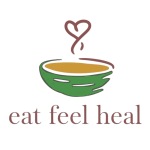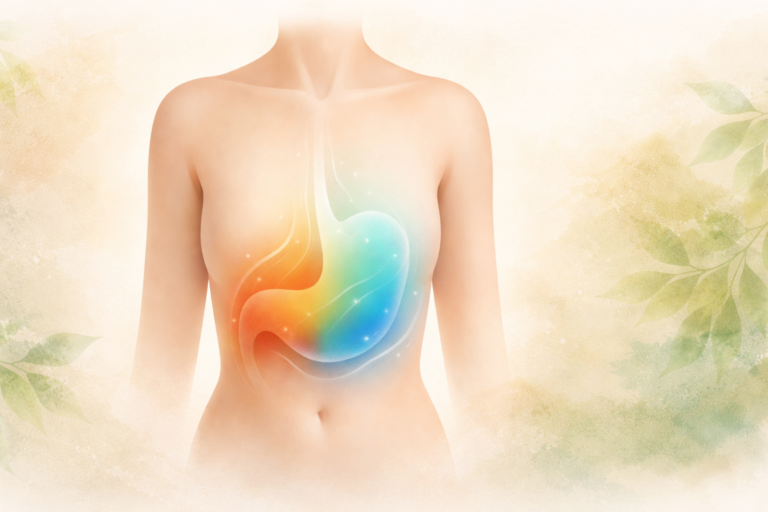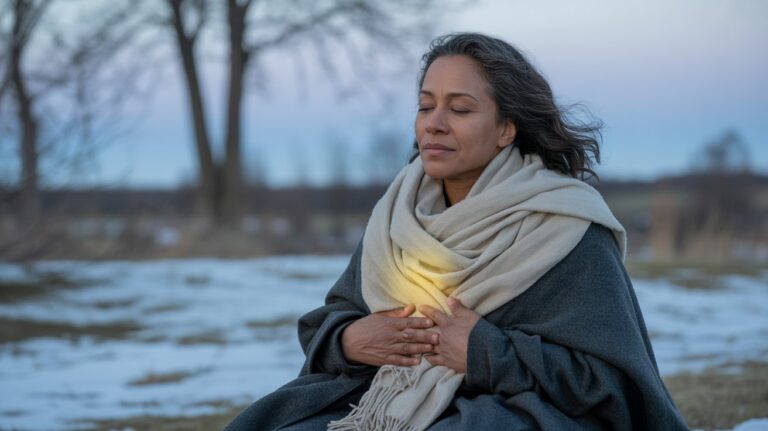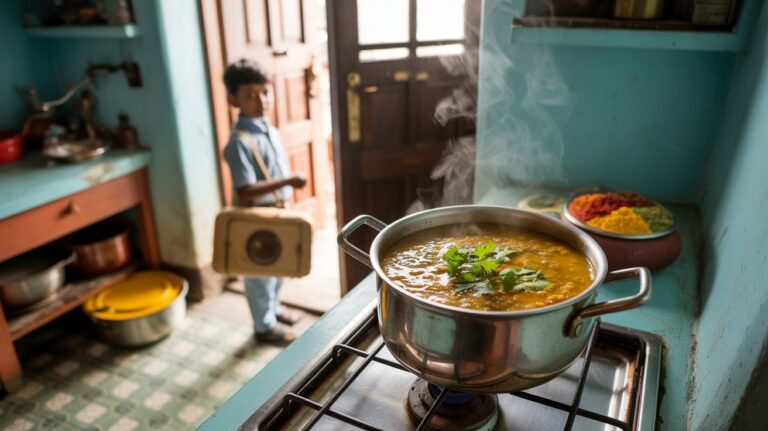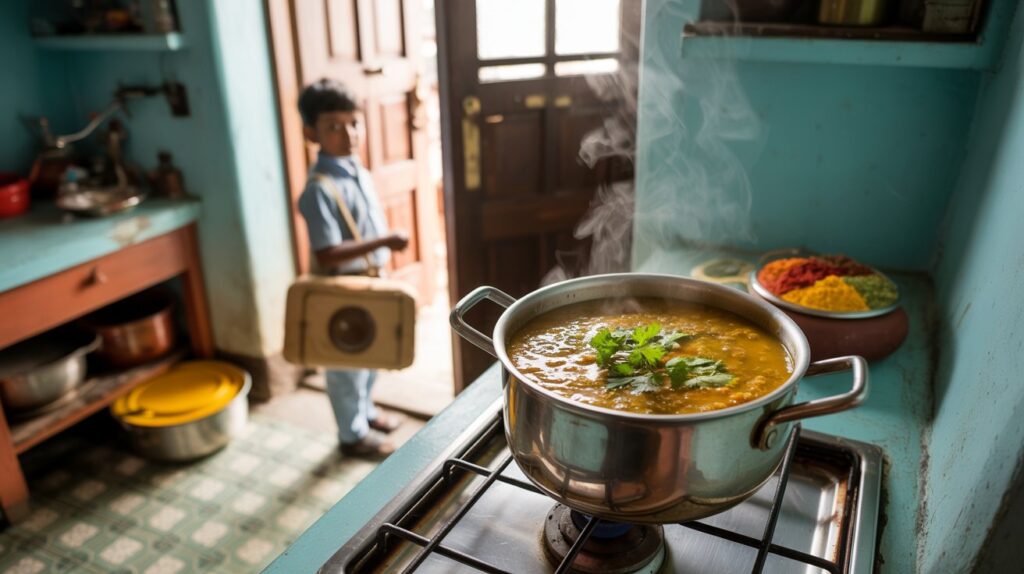
In the Beginning
My mother says I started following her around the kitchen, aged 9 to 10. That was 1986; I’m forty-eight now and it’s 2024.
I used to be at an all-boys weekly boarding school from age 5 to 12, living at school from Monday morning to Friday afternoon. And every Friday lunchtime I walked to the parking lot to find my mother waiting to take me home. And I still remember — starting as young as age 6 or 7 — how from Thursday night through Friday’s classes, I would dream of Mum’s food that was waiting for me. And I would salivate for it. From then until today, whether returning from boarding school, later as a university student, and even later as a solo backpacker across continents — whenever I stopped by my mother’s for a visit, I could always count on a pot of my favourite freshly prepared meal on the stove the moment I entered the house.
Because that’s what Indians do: we enter through the kitchen; everyone else uses the front door.
I didn’t know it then. And it would take decades of exploration — across continents in the outer world, and galaxies of my inner world — to eventually realise that what was a simple joy of eating, tasting and licking my fingers, was actually the early germinating of a seed carried over generations by my ancestors and planted in me to birth into this world, just as my mother birthed my body into this world.
The First Turning Point
Around 1986, still a child aged 10, I had a profound realisation:
I want to eat Mum’s food every day until I die.
And as I studied it, I saw three options:
- “Mum needs to outlive me — not likely.”
- “I need to marry a woman who learns everything from Mum — unappealing because that carries the stench of dependency.”
- OR “I need to learn everything myself.”
So, aged 10, I asked my mother the question that would guide the following decades of my life:
“How do you cook this?”
To which my mother answered, “Stand here and watch.”
And for the next fourteen years, those five words repeated themselves endlessly:
“Stand here and watch.”
That’s how my life in the kitchen began. Every weekend from boarding school. I peeled onions, garlic, potatoes; caught skins, stalks, and bones in newspaper; washed boards and knives; wiped counters; swept floors; chopped vegetables — always watching out the corner of my eye.
Looking back, it’s kinda obvious that something deeper was going on, calling me forward. Because to be honest, who in their right mind voluntarily subjects themselves to such a steep and long learning curve?
But again, in hindsight, there are a few key observations I made, even if not fully conscious:
-
More than taste, there was a sense of joy and comfort I felt with her food. And not the same kind of comfort as an ice cream in summer or pizza on the couch. Something deeper and more primal. A sense of identity maybe? An identity I had yet to identify with? Definitely a feeling of belonging, a sense of I am Home, beyond the house, my parents and brother.
-
And there was also a sense of community — a gathering of family and friends in good spirit, love and gratitude that seemed to congregate around her food.
I remember this. I remember feeling this. And an inexplicable curiosity. Why does she add mustard seeds into oil before anything else? How does she know that onions are ready for her to add powdered spices? Why is she so meticulous about how she adjusts the heat under the pot at specific times … and for specific times? How does she know to leave the pot simmering for as long as it takes her to have a shower and then return, without once lifting the lid to check? Why does she get so furious if I open the lid to sneak a peek before she gives permission? And what is that powder she sprinkles at the end that she’s not telling me about?
Graduation
In 2000, aged 24, when extended family came over for a meal, for the first time in human history, my mother allowed me to cook the main dish.
All the Indians in the house know exactly how high these stakes are! It turned out though, that I ended up sitting at the table that evening listening to everyone praise my mother for her outstanding food once again.
My mother’s side-way glance to me with that subtle smile of secrecy among thieves was my graduation. Something in me shifted on that day. I didn’t know what, I did not know why, nor did I know how significant this would be.
Since then I have cooked practically every day for twenty-four years across three continents:
- As a backpacker in hostels
- As a camper outside my tent, on wood and charcoal fires under forest canopies and night skies
- In deserts, next to oceans, on hilltops, mountains, valleys, cities, islands
- As an Ayurvedic cook for events, weddings, retreats, private functions
- And in social cooking classes and workshops
. . . London, South Africa, Zambia, India, Nepal, Sri Lanka, Gozo, Malta and Corsica.
Every new place I travelled, I went first to the local food market, then back to my room or tent, and cooked. When I was alone, I cooked. When I made new friends, I cooked. When I felt lost, I cooked. When I was happy, I cooked.
There was something about Philen and food that was different from everyone else I knew… but I didn’t know that yet. Isn’t it funny how Purpose – like Love – finds us when we are not looking or trying . . ?
Click Here to follow the story.
